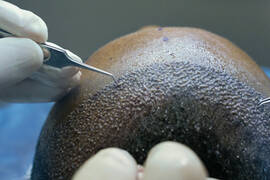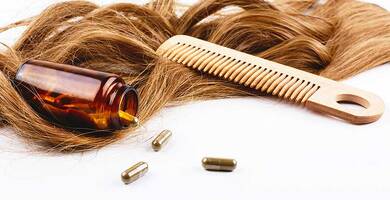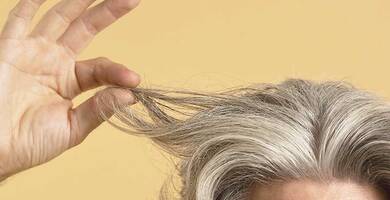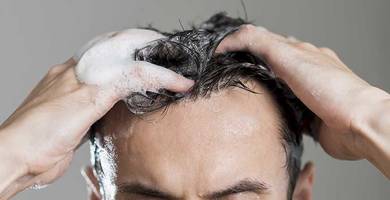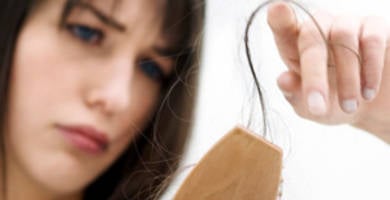Vitamin D and hair loss: Everything you need to know
By Prof. Dr. Soner Tatlidede 2022-08-26
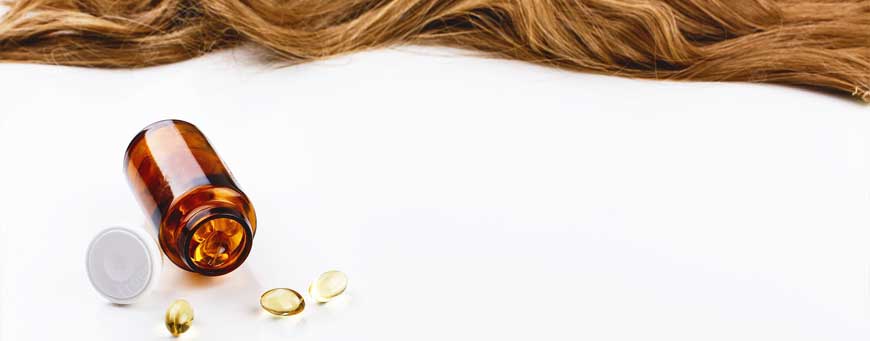
Is there a relation between lack of vitamin D and hair loss? The fact is that vitamin D is essential for our health and plays a very important role in many bodily functions, regulating metabolism, the nervous and muscular systems, and our body's defences. So, what happens when there is not enough vitamin D? May vitamin D deficiency cause hair loss?
Like other vitamins for hair, the importance of vitamin D is that it allows the absorption of minerals such as calcium and phosphorus, as well as other trace elements that are essential for the health of bones, skin... and hair. In the following lines we are going to answer to the important question “Can low vitamin D cause hair loss?”, as well as to explain why this vitamin is so important for your hair, and what it can do for you hair health.
Why is so important vitamin D for hair?
We have already explained that vitamin D fulfills a series of essential functions to regulate our body and maintain our health; by allowing calcium absorption, it not only reduces the risk of bone fractures, but also increases muscle strength. But in addition, vitamin D helps nails and hair by strengthening them, and stimulating their growth. And hence the importance of vitamin D for hair loss.
Because, if your hair is deficient in vitamin D, it will become weak and brittle, while hair with sufficient vitamin D will be strong, healthy and vigorous; that is because vitamin D is responsible for strengthening and stimulating follicles (not to be confused with follicular units, which are key in FUE hair transplant). But then, if vitamin D is so essential for hair, what happens if you don´t have enough of it? Does vitamin D deficiency cause hair loss? Let´s see it.
Can vitamin D deficiency cause hair loss?
Can lack of vitamin D cause hair loss? Do not forget that vitamins are essential for maintaining hair health, and D is no exception. If in adequate doses it strengthens and stimulates hair, vitamin D deficiency makes hair weak, with no strength or shine, and makes it brittle.
In addition, in many cases a lack of vitamin D causes hair to fall out (although not as quickly as with telogen effluvium); so, if we suffer from alopecia, this deficiency can aggravate our hair problems.
Is hair loss due to vitamin D reversible?
So, what happens when hair loss due to low vitamin D occurs? Well, we have some good news for you: hair loss due to vitamin D deficiency is usually reversible, and once the vitamin levels are restored to normal, follicles start to work back as usual and hair regrows.
Of course, it all will depend on the levels of vitamin D deficiency your hair gone through: the lower the vitamin D levels, the bigger the damage to your hair; but if no other problems or diseases are involved, your hair should grow back normally after 6 months once deficiency is over.
How do I know if have low vitamin levels?
Although vitamin D causes hair loss, we must remember that, since this vitamin is synthesized in the skin, we can observe the first vitamin D deficiency symptoms before hair loss occurs in the skin itself: redness, dry or irritated skin, appearance of scales or skin rashes, etc.
However, the thing is that the signs that may indicate a deficiency of this vitamin are multiple, and can often be confused with other pathologies if not analyzed by a specialist. In summary, some of the main consequences and symptoms that lack of vitamin D causes in our health, are the following:
- hair loss
- bone pain (mainly in the back and hips)
- loss of bone density
- muscular weakness
- headaches
- fatigue
- insomnia
- depression
- increased rickets in children
Although there is still no scientific consensus, some experts have linked low levels of vitamin D in the body with certain diseases such as diabetes or hypertension, and even with autoimmune diseases such as multiple sclerosis (MS), as well as with certain types of tumors, such as breast cancer, according to published studies.
Nowadays, and due to a more sedentary lifestyle, vitamin D deficiency is a very common problem among the population, and often people are not aware of it. According to some estimates, around 60% of adults suffer from a deficiency of this vitamin, a percentage that increases to 80% among the elderly, because over the years the body loses its ability to synthesize vitamin D.
What can I do if I have hair loss and vitamin D deficiency?
Vitamin D is synthesized thanks to the action of sunlight, which triggers a chemical reaction in the skin: hence hair loss due to lack of vitamin D is more common during winter months, or in cold climates. Therefore, the most natural way to increase our vitamin D levels is to expose ourselves to the sun: 15-20 minutes a day is more than enough.
Apart from the sun, another key to increase vitamin D levels are nutritional factors and supplements, although compared to the sun, food only accounts for about 10% of the natural source of vitamin D in our body. Some foods rich in vitamin D are:
- eggs
- cheese
- milk and yogurts
- oily fish (sardines, salmon)
- beef liver
- some yeasts and algae
- cod liver oil
So, this is why vitamin D and hair loss are so connected. In any case, even if you choose the best vitamin D supplement for hair loss, you should take it only under a specialist supervision. And of course, if you are suffering from any problem with your hair, our advice is clear: always choose the best experts. Do you know Clinicana? We are the best hair transplant clinic in Turkey, with skilled experts in all kinds of hair treatments. Just request a free consultation, and ask us for a free, no obligation estimate... Put your hair in the best hands!

